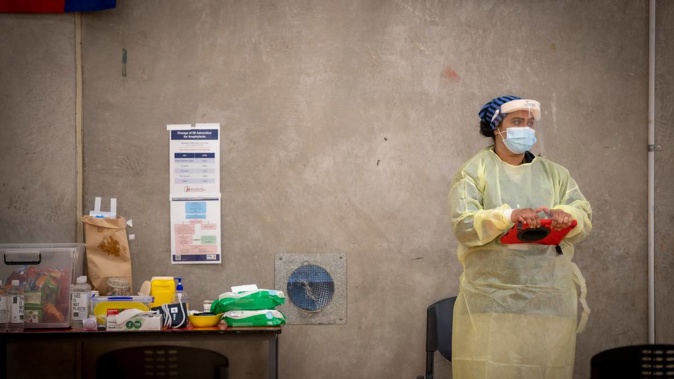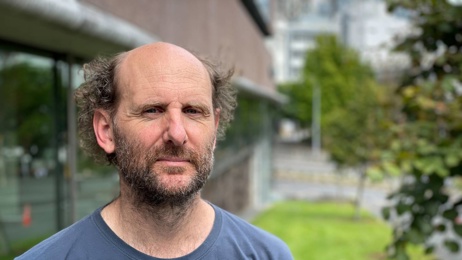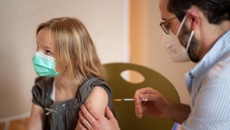
Covid-19 experts have praised the Government for its decision to keep Auckland in alert level 3 for the next fortnight, while others say today's announcement is a missed opportunity.
Prime Minister Jacinda Ardern announced on Monday, Auckland will stay at level 3 with existing restrictions for the next two weeks at least. She could not say exactly how long Auckland would be at level 3 before restrictions eased further.
Professor Michael Plank said it would be too risky for restrictions to ease given the country's current vaccination rates.
"I do think this is the right move. It's too soon with vaccination rates, with what they are at the moment, it would be too risky to ease restrictions at the present time.
"So I think holding things as they are for that two-week period will put us in a better position because it will give us time for us to get those vaccination rates up, particularly people coming back for their second dose."
/cloudfront-ap-southeast-2.images.arcpublishing.com/nzme/F76ENYNCGG2OLCU7FTVGQ4GFUY.jpg)
While a move to level 4 was on the table to counter the growing Delta outbreak, Plank believes it wasn't needed at the present time, but it's good to have that "tool in the toolkit".
University of Otago's Professor Nick Wilson said today's decision was wise.
He said this would help keep the "suppression strategy working in Auckland" and possibly achieve elimination in the Waikato.
"But it was a bit concerning that there was no announcement about strengthening internal borders around Auckland and the Waikato to prevent the spread of Covid-19 to other regions."
/cloudfront-ap-southeast-2.images.arcpublishing.com/nzme/4RZWQCEPYP4MH2G4WXJSHNNMBI.jpg)
Wilson said New Zealand needs more Covid-19 free weeks and months to build up vaccination levels.
"We need additional border controls such as vaccination requirements and a negative rapid antigen test result for those leaving Auckland and the Waikato.
"These types of measures would help us to replicate the success of those Australian states and territories which are also continuing with their elimination strategies," he said.
Although Super Saturday was a success, Wilson believes more resourcing needs to be given to community health providers for other local initiatives.
However, Immunologist Dr Dianne Sika-Paotonu said an "immediate "circuit breaker" response was required to control the outbreak.
"An immediate 'circuit breaker' response is desperately needed to allow as much time possible for people to get vaccinated, given the risk of exacerbating adverse outcomes for vulnerable groups including Māori and Pacific communities already heavily impacted by the Delta outbreak."
As a high degree of risk remains, Sika-Paotonu said Delta continues to transmit through communities, often reaching the most vulnerable.
"We desperately need to buy more time to drive vaccination rates up even further as quickly as possible, and to give more time for our hospitals to be ready for what's coming."
Professor Des Gorman said the announcement was predictable but also disappointing.
Speaking with Andrew Dickens, Gorman said Aucklanders need clarity which he didn't see in today's announcement.
"The reason why I am disappointed ... is that what we needed today was clarity on the plan, we needed to know timelines, we need to know what the end game looks like," he said.
On vaccination rates, Gorman said privileges should be set out explaining what those who are vaccinated can do compared to those who aren't.
/cloudfront-ap-southeast-2.images.arcpublishing.com/nzme/RQQ64V6WJ3ZUZGUCST7PBYRDKQ.jpg)
Auckland University public health Associate Professor Dr Colin Tukuitonga agrees with the Government's decision for Auckland.
"I think overall it's a sound and safe decision," he said.
On vaccination rates, Tukuitonga said it is important to ensure all vulnerable communities are safe before restrictions are eased.
Take your Radio, Podcasts and Music with you









